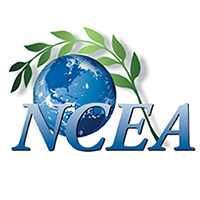Quick Links
Learn how to become an esthetician
Estheticians are licensed wellness professionals that provide a range of skincare treatments for their clients.

Occasionally spelled aestheticians or referred to simply as skincare specialists, estheticians are licensed wellness professionals who provide a range of skincare treatments for their clients. As a profession that falls under the umbrella of cosmetology in most states, they focus on beautifying and improving the health of clients’ skin through cleansing, exfoliating, waxing and many other esthetic treatments that they’ve been trained to provide.
Is a career in esthetics right for you?
With higher-than-average job growth projections, becoming an esthetician can be a great career for people who want a relatively low-stress job that allows them to help others feel beautiful and confident. Because of this, estheticians are often sociable, empathetic people who are on a mission to help others feel good about themselves.
“I feel like out of all the things I’ve done in my life, this has been the most fun and rewarding because you do have the ability to change people’s lives, even in something as simple as a makeup service or a brow service, chemical peels, things like that,” said Brenda Groce, Director of Northwest Esthetics Academy in Kennewick, Washington. “It is so rewarding to be able to build relationships with people and teach them things about their skin. You just have an everlasting impact on them and they have the same impact on you.”
“I feel like out of all the things I’ve done in my life, this has been the most fun and rewarding…”
– Brenda Groce
“I mean there’s nothing more satisfying than having a teenager come in, who is already dealing with the stress of being a teenager, and then to have acne on top of that and helping them get rid of that certainly is huge. And I think it’s about the self-satisfaction and really being able to help other people be the best that they can be,” said Susanne S. Warfield, Founder and Executive Director of the National Coalition of Estheticians Association (NCEA).
The esthetician profession generally has a lot of flexibility and is conducive to part-time work. This can make it an especially appealing option for people who have difficulty committing to a regular, full-time schedule.
With so many different specialties and niches within the field itself, estheticians also have the option to customize their careers and the services they offer to suit their interests and build a business that reflects their beauty ideals. If this sounds appealing, then an esthetician career could be right for you.
Here’s how to become an esthetician in 5 steps
Decide if an esthetician career is right for you.

Do you enjoy working with people? Are you passionate about skincare, health and wellness? Do you want a job that allows you to make a positive impact on people’s lives? Would you like the option of working part-time or going into business for yourself? If you would answer ‘yes’ to most of these questions, pursuing a career as an esthetician could be a great option.
Research your state’s licensing laws.

Every state has its laws regarding estheticians, including what’s required to be licensed and their professional scope of practice. Start by researching the licensing laws in your state. This also allows you to find out how many hours of education you need, which can help in your search for an esthetician education program.
Complete an esthetician program or apprenticeship.

Estheticians must attend an approved education program or apprenticeship to be licensed. Your state’s licensing laws determine how long that program must be. Most states require at least a 600-hour program, which typically lasts several months.
Pass your licensing exam(s).

Each state has its examination requirements for estheticians—most require that you pass a written theory and practical exam from the National Interstate Council of State Boards of Cosmetology (NIC). Some states also require applicants to pass a state-specific laws and rules exam. Passing your exams is usually the final step on the way to licensure. Once a license is granted, you may start working.
Keep learning through continuing education.

Currently, only a handful of states require estheticians to complete continuing education to maintain their licenses. Whether or not it’s required where you live, estheticians must take it upon themselves to keep up with the latest advancements in the field to ensure that they are providing the best possible treatments for their clients.
What do you need to become an esthetician?

Estheticians must be licensed in every state, though esthetician licensing requirements can vary in different places. In general, you must complete an esthetician or cosmetology program (or an approved apprenticeship) and then pass an exam (or several) to be eligible for licensure. A handful of states offer an additional licensing tier such as a Master or Advanced Esthetician for people who have completed advanced training.
The number of hours for the education requirement varies by state but generally ranges between 600 and 1200 hours of instruction. This typically translates to a program lasting several months to a year or longer.
After graduating from an approved program, estheticians must take and pass their state’s licensing examinations. Many states require applicants to take a written and a practical exam. After that, they should be ready to apply for a license typically issued by a state cosmetology board.
Esthetician vs. cosmetologist: what’s the difference?
Estheticians and cosmetologists are two distinct professions that share many similarities, causing the two terms to often get confused or incorrectly used interchangeably. Cosmetology denotes the practice of beautifying the face, skin and hair. As such, it’s an expansive field that includes professionals such as barbers, manicurists and nail technicians, estheticians, hair stylists, makeup artists and more. Estheticians, on the other hand, primarily focus on skincare. It’s fair to say, therefore, that estheticians are considered a type of cosmetologist, but not all cosmetologists are estheticians.
Esthetician earning potential
Estheticians may have a median annual salary that’s lower than the national average across all occupations, but salaries can be very different depending on your location, years of experience, special skills and more. According to the 2023 Occupational Employment and Wage Statistics from the U.S. Bureau of Labor Statistics (BLS), the median annual salary for skincare specialists is $43,200. The states with the highest median annual wages for skincare specialists include Vermont, Washington and North Carolina.
Many estheticians choose to start their own private businesses and offer their services as self-employed professionals. The BLS does not include data for self-employed workers, so their salary figures may not entirely represent what you could earn as an esthetician.
When you start your own business, you can set your own prices and have greater autonomy over the services you offer and your schedule. However, running a business also comes with many expenses that are up to the owner to pay, such as rent for a salon space, liability insurance, business license fees or paying other employees’ wages if you decide to hire additional help.
“Being self employed is probably another reason that a lot of people gravitate towards the field, because working for yourself is great. You can do your own schedule, you can still have a really good work-life balance. But being self-employed also can be a drawback because [running a business] is hard and it’s expensive, but it is rewarding,” Groce said.
Job growth for estheticians
The BLS estimates that the employment of skincare specialists will grow 9.1% through 2032, which is about three times faster than the average across all occupations. As you might expect, there were more estheticians working in states with higher populations overall including California, Florida, New York and Texas. However, data from the BLS indicates that most of the states with the highest concentration of estheticians are on or near the West Coast.
What being an esthetician is all about
Estheticians are skincare experts. Although they don’t have the medical background that a dermatologist does, they are highly skilled in providing various superficial skin treatments to enhance the health and appearance of one’s skin.
“Estheticians are licensed professionals. We specialize in treating and improving the health of the skin. We provide many services, including facials, chemical peels, makeup, eyelash and brow enhancement, waxing, consultations—and those are just to name a few,” Groce said.
Estheticians typically provide their services in salons and spas, with some also working in certain medical settings. Their job duties and the services they offer can depend on their expertise and their state’s scope of practice laws, but in general, estheticians can expect to do the following:
- Consult with clients to determine the best treatment options for their unique skincare needs
- Provide skincare treatments to clients such as facials, extractions, waxing, microdermabrasion, chemical peels, hair removal and more
- Educate clients on how to take care of their skin at home, from skincare product recommendations to nutrition advice about the relationship between diet and skin health
- Clean, maintain and restock skincare treatment tools and products
While many of an esthetician’s services are focused on the face, estheticians are generally trained in full-body skincare.
It should be noted that estheticians cannot diagnose skin conditions or prescribe medications. More serious skin conditions should be addressed by a dermatologist. Furthermore, an esthetician’s scope of practice can be different in different states, meaning estheticians can be limited by what they can and cannot do depending on where they work.
Esthetician skills and competencies
All estheticians need to know how to work with clients, listen to their skincare needs and offer solutions that are catered to each individual. As such, they need a certain amount of scientific and biological knowledge and robust interpersonal skills. Some of those skills include:
| Hard skills | Soft skills |
|---|---|
| Skin anatomy and physiology | Empathetic and a good listener |
| Ability to put your client’s needs first | Time management skills |
| Know how to perform skincare treatments including but not limited to facials, waxing, chemical peels, microdermabrasion and more | Attention to detail |
| Follow state scope of practice laws and relevant health and safety regulations | Ability to put your clients’ needs first |
“From a professional standpoint, you should definitely be someone who’s going to commit themselves to ongoing education and ensure that they are, at a minimum, following infection control practices from the CDC, OSHA laws and have a genuine caring for the client and for the individual and want the best for them and not make a sales pitch,” Warfield said.
Thrive as an esthetician: 5 key tips from a licensed professional

Love, Network, Learn, Be Savvy, Value Yourself (and Prioritize You!)
- Passion is Power: Pursue what excites you – like Fauzia Morgan, who translated her experience into a holistic esthetics approach. Find your niche and let it fuel your success.
- Build Your Network: Connect with clients and colleagues online and offline. Join groups, collaborate with professionals, and confidently market yourself. Remember, strong connections are key.
- Product Savvy with Sincerity: Recommend products you truly believe in, not just for sales. Organic and natural options are increasingly popular. Your passion and knowledge will build trust with clients.
- Know Your Worth: Research industry standards and local rates. Set fair prices that reflect your expertise and value your time. Don’t undervalue your services.
- Lifelong Learning: Continuously upgrade your skills. Attend courses, trade shows, and stay informed through industry resources. Invest in your growth to stay ahead of the curve.
Bonus: Self-Care is Essential: Taking care of yourself is crucial in this caring profession. Prioritize breaks, healthy habits, and activities that reduce stress. Your well-being translates to a better client experience.
Remember, success in esthetics is a blend of passion, knowledge, and dedication. By following these tips and prioritizing your own well-being, you can build a thriving career in this rewarding field.
Resources and further reading
To learn more about the esthetic profession and find resources to help build your career, check out some of the leading professional organizations in the field:
- The National Coalition of Estheticians Association (NCEA):
- Provides the national esthetician certification (NCEA Certified credential). They also work to raise estheticians’ professional and ethical standards with national credentialing and continuing education accreditation.
- The National Interstate Council of State Boards of Cosmetology (NIC):
- Develops written and practical exams for numerous cosmetology professionals, including estheticians, which most states use as their licensure exams. They seek to promote and support uniformity in the practice of cosmetology and related fields.
- The Associated Skin Care Professionals (ASCP):
- A professional membership organization that can connect members with professional liability insurance, continuing education and networking opportunities, career support and more. They also publish a skincare magazine each season called “Skin Deep.”
Frequently asked questions (FAQs)
Are estheticians in high demand?
Relatively speaking, estheticians are in high demand. The BLS estimates that the employment of skin care specialists will increase 9.1% through 2032, which is much faster than the 3% average across all occupations.
Can estheticians do Botox?
No, estheticians cannot perform Botox on clients. This type of medication can only be administered by a medical professional with a license to do so, such as a registered nurse (RN) or physician.
Do estheticians need a license?
Yes, estheticians must be licensed in every state. The services they provide to clients depend on their state’s scope of practice laws for estheticians.
Why do people seek out estheticians?
People seek out estheticians for a variety of reasons. They may want a professional’s help treating a specific skin condition (such as acne), they may be looking for a way to make their skin appear more youthful or they may simply want to feel pampered.
Published February 20, 2024

Written and reported by:
Kendall Upton
Staff Writer

With professional insight from:
Susanne S. Warfield, Founder and Executive Director
National Coalition of Estheticians Association (NCEA)

With professional insight from:
Brenda Groce, Director
Northwest Esthetics Academy
